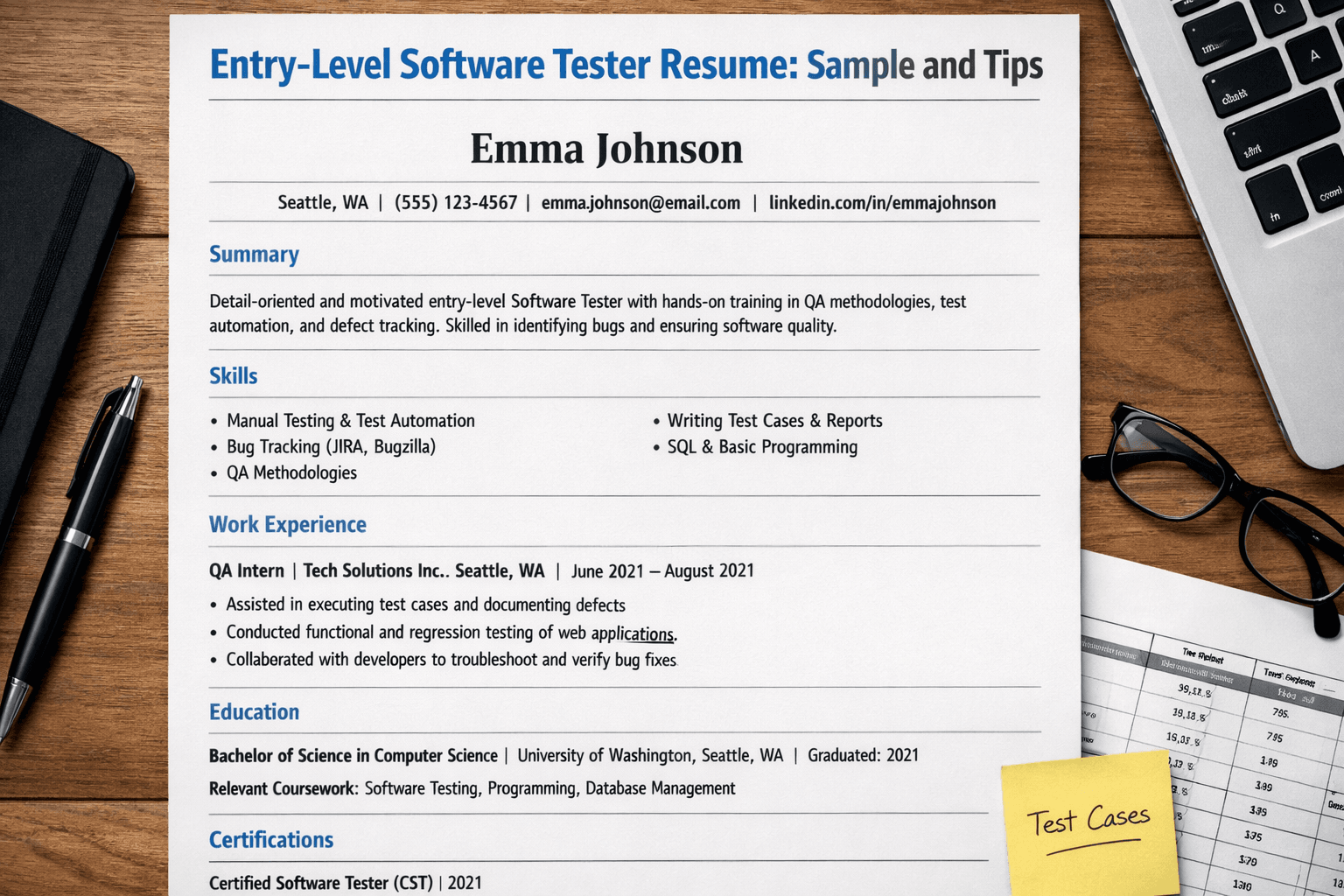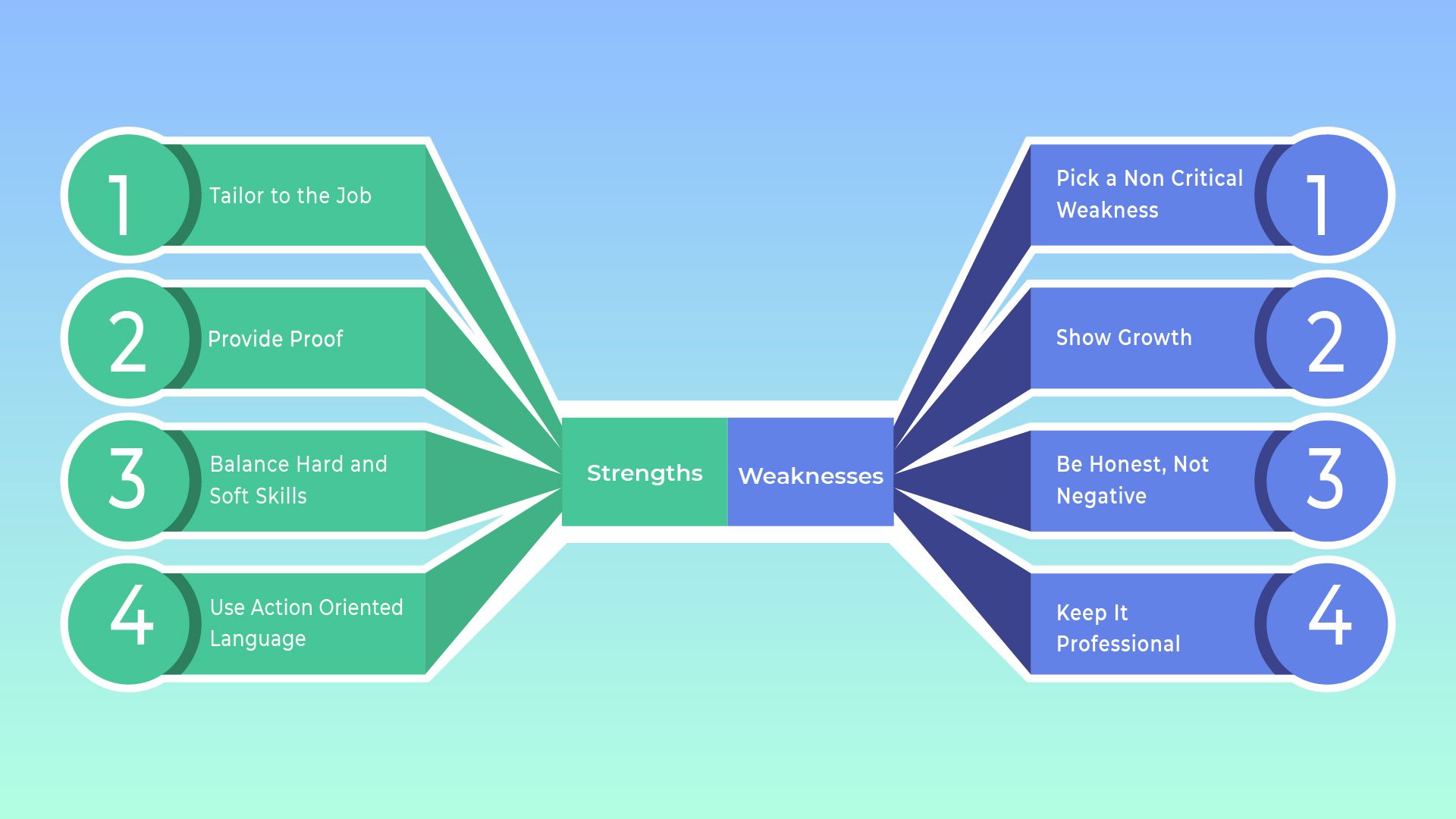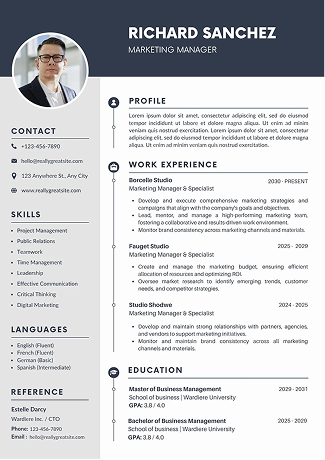Strengths and Weaknesses in CV: Examples & Writing Tips
Learn how to write strengths and weaknesses in your CV with practical examples and tips to impress recruiters and show confidence with honesty.
Overview
Your CV is more than a list of qualifications it’s your professional story. This guide from Sound CV shows how to write strengths and weaknesses that impress recruiters. Learn how to present your best qualities with examples, frame weaknesses positively, and answer interview questions confidently while showing honesty, self-awareness, and a mindset for growth.
Your CV tells your professional story it highlights your skills, experience, and achievements. But there’s one section that often confuses job seekers: should you include strengths and weaknesses in your CV? If yes, how can you talk about them without sounding overconfident or drawing attention to your flaws?
This guide will help you present your strengths and weaknesses the right way. You’ll learn how to write your strengths with examples, how to mention weaknesses without hurting your chances, and practical resume tips that help your application stand out.
What Are Your Strengths and Weaknesses?
When employers ask, “What are your strengths and weaknesses?”, they’re not just testing you they want to understand how you see yourself as a professional. This question helps them assess your self-awareness, confidence, and ability to grow.
Strengths:
Your strengths are the qualities and skills that make you effective at your job. These can include both technical and personal abilities.
At Sound CV, we suggest choosing strengths that align directly with the position you’re applying for and backing them up with examples.
Common Strengths Examples:
Problem-Solving: Finding creative solutions under pressure.
Communication: Expressing ideas clearly in writing or speech.
Leadership: Guiding teams and managing tasks efficiently.
Adaptability: Adjusting quickly to new environments or tools.
Time Management: Meeting deadlines while handling multiple tasks.
When describing your strengths, use specific examples like:
“One of my key strengths is time management I consistently deliver projects ahead of deadlines by prioritizing tasks efficiently.”
Weaknesses:
Your weaknesses show that you’re human and self-aware enough to recognize areas for improvement. The key is to pick a weakness that’s not critical to the job and explain how you’re working on it.
Common Weaknesses Examples:
Public Speaking: “I used to feel nervous during presentations, but I’ve been taking workshops to build confidence.”
Delegation: “I sometimes take on too much responsibility, though I’m learning to trust my team more.”
Overthinking: “I tend to double-check my work, but it helps ensure quality results.”
Technology Learning Curve: “I need time to adjust to new tools, but I make up for it by practicing regularly.”
How to Answer This Question Confidently
Be Honest but Strategic: Pick real examples, not clichés.
Show Growth: Explain what you’re doing to improve your weakness.
Match the Job Role: Align your strengths with what the employer values most.
Keep It Balanced: Share one strength and one weakness for a concise answer.
Example Answer:
“One of my strengths is adaptability I perform well in changing environments and quickly learn new tools. As for weaknesses, I sometimes focus too much on small details, but I’ve been improving by setting clear priorities and deadlines.”
Why Mention Strengths and Weaknesses in a CV?
Recruiters want to see more than just your technical abilities. They’re also looking for personality traits, soft skills, and self-awareness. Including a short section for strengths and weaknesses can show that you:
Understand your own skills and limits (self-awareness)
Recognize where you can improve (professional maturity)
Are confident yet realistic (balanced mindset)
Also Read:Interview Questions for Teachers with Answers
How to Write Strengths in a Resume
When listing your strengths, focus on what’s relevant to the job. Avoid generic terms like “hardworking” or “good communicator.” Instead, describe specific abilities and back them up with examples.
Tips for Writing Strengths:
Tailor to the Role
Match your strengths to the job description.
Example: For a marketing job, mention creativity, analytical thinking, and adaptability.Show Proof
Replace vague phrases with measurable examples.
Example: Instead of “team player,” write “Worked with cross-functional teams to launch two new campaigns on time.”Mix Hard and Soft Skills
Hard skills: tools, technical expertise, or languages
Soft skills: leadership, communication, time management
Use Action Words
Verbs like achieved, led, improved, developed, or managed make your CV more dynamic.
Also Read:200+ Job Title in Resume That Pass ATS
Strength and Weakness in Interview for Freshers
For freshers, interviewers often ask about strengths and weaknesses to see how you understand yourself and handle challenges. The goal isn’t to test perfection it’s to see how you think and grow.
At Sound CV, we recommend highlighting strengths that match the job and weaknesses that show a willingness to improve.
Examples of Strengths:
Quick Learner: “I pick up new tools and processes easily.”
Team Player: “I work well with others to achieve goals.”
Adaptable: “I adjust quickly to new situations and challenges.”
Good Communicator: “I express ideas clearly and listen actively.”
Examples of Weaknesses:
Public Speaking:“I get nervous in front of large groups, but I’m improving through practice.”
Overthinking:“I sometimes spend too long on details but now focus on priorities.”
Lack of Experience: “I’m new to the field but eager to learn and apply my knowledge.”
Keep your answers short, honest, and balanced focus on how you’re learning and growing. Interviewers appreciate sincerity more than perfection.
Also Read:30 Best Resume Fonts to Use in 2026
Examples of Strengths for Your CV
Here are some strengths that are valued across most industries:
Problem-Solving: Able to find solutions quickly and effectively.
Adaptability: Comfortable working in changing environments or roles.
Leadership: Experienced in guiding teams and motivating others.
Technical Expertise: Skilled in specific tools, software, or coding.
Communication: Strong in writing, presenting, and collaboration.
Time Management: Skilled at meeting deadlines and managing priorities.
Also Read:Common Interview Questions and Answers You Must Know
How to Talk About Weaknesses in Your CV Without Risk
Weaknesses are the hardest to include. Many candidates avoid them, but when framed properly, they can actually show your growth mindset.
The key is to describe weaknesses as areas you’re actively improving, not as failures.
Tips for Mentioning Weaknesses:
Choose a Non-Critical Weakness
Avoid weaknesses directly related to essential job skills.
Example: Don’t say “I’m bad at coding” if applying as a developer.Show Progress
Example: “I used to feel nervous about public speaking, but I’ve joined workshops to improve my confidence.”Stay Professional
Keep it job-related. Don’t include personal habits or unrelated flaws.Keep a Positive Tone
Focus on what you’re doing to improve, not what you lack.
Examples of Weaknesses for CV
Public Speaking: “Not my strongest skill, but I’ve been practicing through presentations and seminars.”
Delegation: “I sometimes take on too much myself, but I’m learning to delegate more effectively.”
Perfectionism: “I can spend extra time checking details, which ensures high-quality work.”
Technology Learning Curve: “It takes me a little longer to learn new tools, but I adapt quickly once trained.”
By turning weaknesses into development goals, you show maturity and self-awareness — qualities every employer values.
Resume Tips for Strengths and Weaknesses
Placement:
Add strengths in your Skills section or within job descriptions. Weaknesses fit better in a cover letter or interview discussion, not as a standalone section.Use Keywords:
Include strengths that match the job ad to improve your CV’s ATS score.Be Brief:
Two to three sentences or bullet points are enough.Balance Confidence and Humility:
Show that you know your worth but remain open to learning.
Also Read:Resume Summary for Freshers: Best Examples
10 Examples of Strengths and Weaknesses of Job Interviews
When asked about your strengths and weaknesses in an interview, the best approach is to stay honest and show a balance between confidence and self-awareness. At Sound CV, we suggest choosing strengths that fit the job and weaknesses that show you’re actively improving.
Top 5 Strengths for Job Interviews:
Adaptability: “I adjust quickly to new tools and work environments.”
Problem-Solving: “I stay calm under pressure and focus on finding solutions.”
Teamwork: “I work well with colleagues to achieve common goals.”
Communication: “I can express my ideas clearly and listen carefully.”
Leadership: “I motivate others and take responsibility for results.”
Also Read:300+ Example Strength in Resume
Top 5 Weaknesses for Job Interviews:
Public Speaking: “I used to feel nervous speaking to groups, but I’m improving through practice.”
Delegation: “I sometimes take on too much myself, though I’m learning to trust my team more.”
Perfectionism: “I pay too much attention to details, but I’m learning to balance quality with efficiency.”
Overthinking: “I tend to analyze things deeply, though I’m working on quicker decision-making.”
Lack of Experience: “I’m still gaining hands-on experience, but I learn fast and take feedback seriously.”
Use these examples as inspiration to tailor your own answers. Employers aren’t looking for flawless candidates — they value honesty, awareness, and a genuine desire to grow.
Sample Strength and Weakness Phrases for CV
Strengths:
“Improved team performance by introducing new workflow processes.”
“Recognized for mentoring junior employees.”
“Delivered clear presentations to clients and internal teams.”
Weaknesses:
“Sometimes overcommit to projects, but I’m improving at setting boundaries.”
“Not naturally extroverted, yet I make an effort to network regularly.”
“Take time to adjust to new tools but quickly become efficient once trained.”
Also Read:ATS Friendly Resume for Freshers 2026 Guide
Conclusion:
The way you write your strengths and weaknesses in a CV can influence how recruiters view you. At Sound CV, we recommend keeping your strengths relevant, proven, and aligned with the role. Weaknesses, when written with honesty and a focus on improvement, can make you appear more relatable and credible to employers.
Remember no one expects perfection. Employers want candidates who know their abilities and are willing to grow. A well-written CV doesn’t just list qualifications; it tells a story of progress and potential.
FAQs
Frequently asked questions about this topic
Related Blogs
Explore more insights and guides you might like.

HR Executive Resume Guide With Format, Skills, and Examples
HR Executive Resume Guide With Format, Skills, and Examples is a practical resource that helps you create a professional, ATS-friendly HR resume with the right structure, key skills, and real examples.

Entry-Level Software Tester Resume: Sample, Format & ATS Tips for Freshers
Learn how to write an ATS-friendly entry-level software tester resume with examples, formatting tips, and fresher-focused strategies.

Project Manager Resume: Examples, Skills & ATS Writing Tips
Learn how to create an ATS-friendly project manager resume with examples, key skills, measurable achievements, and expert writing tips.

